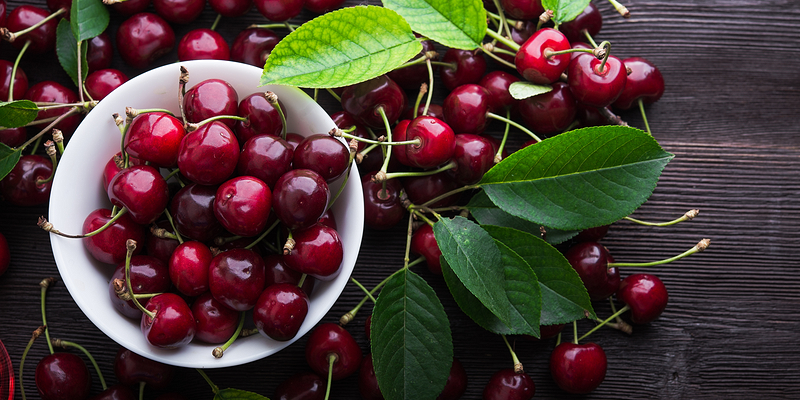The Health Benefits of Cherries
Cherries – these delicious “dessert” fruits are more than just great to taste but also great for your health. Cherries are members of the same fruit family as peaches, plums, apricots and almonds. In this post, we talk about the health benefits of cherries.
Healthy Snapshot
Emerging studies suggest phytonutrients found in cherries may have the ability to reduce the risk of heart disease, certain cancers, diabetes, and even alleviate gout and arthritis pain. Here are the few health benefits of cherries:
- Antioxidant protection – Cherries contain powerful antioxidants like anthocyanins and cyanidin. One study found the antioxidant activity of these substances isolated from tart cherries was superior to that of vitamin E and comparable to commercially available antioxidant products.
- Reduces colon cancer risk – Contain quercetin, which is a flavonoid with anti-carcinogenic activity. New research in the Journal of Nutrition found it helps prevent damaging lesions thought to be a predictor of tumours from forming in the colon.
- Anti-inflammatory – Cherries contain many anti-inflammatory compounds, and research suggests they may help to relieve pain from inflammatory osteoarthritis.
- Promotes better sleep – Cherries contain natural melatonin, which is a powerful antioxidant and free radical scavenger that helps “cool down” excess inflammation and associated oxidative stress. It also plays a vital role in sleep and bodily regeneration.
- Regulates blood pressure – Cherries are very high in potassium, which helps regulate heart rate and blood pressure and reduces the risk of hypertension. The phytosterols in cherries help reduce bad cholesterol levels.
Selection & Storage Tips
- There are two primary varieties of cherries you should know about: sweet and tart (also known as sour cherries). Sweet cherries are best eaten fresh (and raw), while sour cherries develop a fuller flavor when they’re used in cooking (which is why they’re often used for baking).
- Depth of color is more important than the particular shade of red. Look for fruits with deep, dark saturation. If the stem is intact, a bright green color indicates freshness; however, a lack of stem doesn’t always mean the cherries are low quality. Red cherries should also be firm.
- Cold storage is key to keeping cherries fresh. Get your cherries in the fridge as soon as possible, preferably wrapped in a plastic bag.
- Wash them with cold water just before eating. Don’t wash before storage, as moisture can be absorbed where the stem meets the fruit and lead to splits or spoilage.
